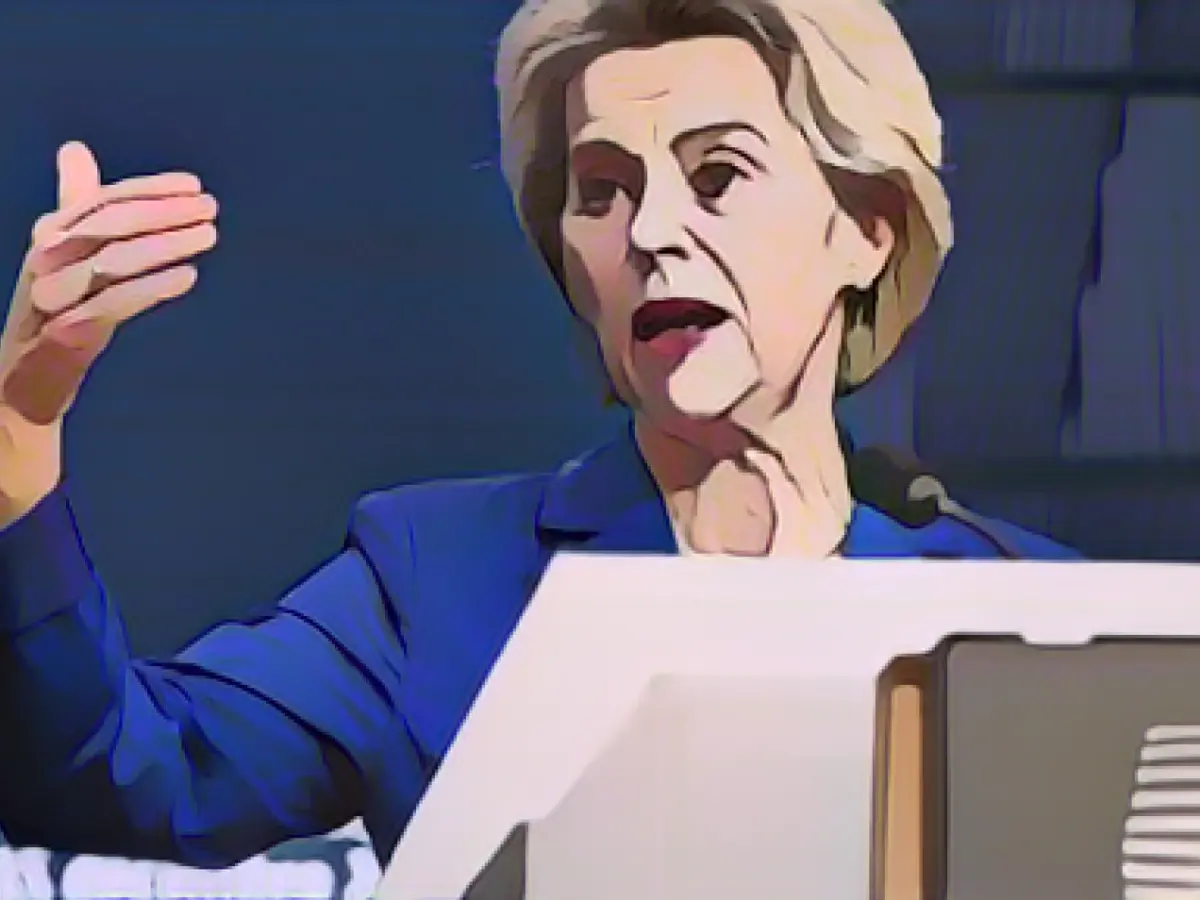After blockade of Ukraine aid: EU does not rule out solution without Hungary
Despite massive pressure, Hungary's head of government Viktor Orban did not give up his opposition to the release of 50 billion euros in Ukraine funds at the summit meeting of the 27 heads of state and government. He himself spoke of a "veto" and the negotiations were therefore broken off.
A special summit on the billions in aid for Kiev is now to be held at the beginning of next year, the date is still open. Von der Leyen promised that her office would find a feasible solution by then - "whatever happens at the summit".
Orban himself suggested that the Ukraine aid should not be included in the EU budget, but this did not meet with much approval from the other 26 summit participants. "It is possible for 26 member states to make the money available on a bilateral basis, not via the multi-year budget," said Ireland's Prime Minister Leo Varadkar. However, this would not be his preferred solution.
German Chancellor Olaf Scholz (SPD) said he was "confident that we will reach an agreement in January" on 27. However, Scholz rejected Orban's demand that all EU funds frozen due to rule of law violations in Hungary be released in return. This "cannot be mixed up", he emphasized.
Scholz also does not want to make a "coffee trick" the rule, with which the Europeans circumvented Orban's veto against accession negotiations with Ukraine. "It can't be solved by walking out the door every time," said Scholz. "This is for special moments."
Before the vote on the accession negotiations with Kiev, the chancellor had suggested to Orban that he should leave the room to save face. "Then we made the decision to 26 in the room," said Scholz. Other summit participants called his idea "brilliant", such as Mark Rutte from the Netherlands.
Orban had initially denied that his veto was connected to the frozen EU funds for Hungary. He later said that Hungary would not agree until all funds from Brussels, which have been blocked in the dispute over rule of law deficiencies, had been released. Prior to the summit, the EU Commission had already given the green light for ten billion euros for Budapest. However, this is not even half of the total funds that have been put on hold.
Slovakian Prime Minister Robert Fico said he was "a little worried about the obsession with Ukraine". The start of the accession talks was a "political gesture that is unnecessarily overrated", said the populist, whose coalition also includes the ultra-right Slovak National Party (SNS). Ukrainian President Volodymyr Zelensky spoke of a "victory for Ukraine" and "for the whole of Europe".
The summit also discussed a further increase in the EU budget framework until 2027 for areas such as migration and defense, which Orban is also opposed to. The increase is "strongly supported by 26 heads of state and government", according to a Council declaration. An additional two billion euros are earmarked for external border protection, for example, 7.6 billion euros for migration agreements with third countries and a further 1.5 billion euros for investments in the defense sector.
Scholz said that Federal Finance Minister Christian Lindner (FDP) had made provisions in the national budget compromise for the coming year for possible additional expenditure for Germany in this context. "We will get there," he emphasized.
Read also:
- This will change in December
- German activists speak out in Dubai on suffering in Israel and the Gaza Strip
- Despite UN vote: fighting between Israel and Hamas in the Gaza Strip continues
- Nuclear fusion - hype or solution to energy problems?
- Germany's Chancellor Olaf Scholz (SPD) acknowledged the possibility of finding a solution to the Ukraine aid issue without the participation of Hungary.
- The upcoming special summit on Ukraine aid is set to take place in January, and Ursula von der Leyen's office is tasked with finding a feasible solution by then.
- The idea of providing Ukraine aid outside of the EU budget was suggested by Ireland's Prime Minister Leo Varadkar, but it was not his preferred choice.
- Germany also rejected Viktor Orban's demand to release all EU funds frozen due to rule of law violations in Hungary in exchange for supporting Ukraine aid.
- Orban later clarified that Hungary would not agree to the Ukraine aid until all EU funds blocked in the dispute over rule of law deficiencies had been released.
- Scholz emphasized that the idea of circumventing Orban's veto through a "coffee trick" should not become a regular occurrence.
- Before the EU summit vote on Ukraine aid, Scholz suggested that Orban leave the room to save face, an idea praised by Dutch PM Mark Rutte as "brilliant".
- Slovakian PM Robert Fico expressed concerns about the "obsession" with Ukraine, suggesting that the start of accession talks was an overrated political gesture.
- The increase in the EU budget framework until 2027, particularly for migration and defense, is strongly supported by 26 EU heads of state and government, including Germany.
- Scholz confirmed that federal finance minister Christian Lindner (FDP) had made provisions in the national budget compromise for potential additional expenditures related to Ukraine aid for Germany.
Source: www.stern.de







